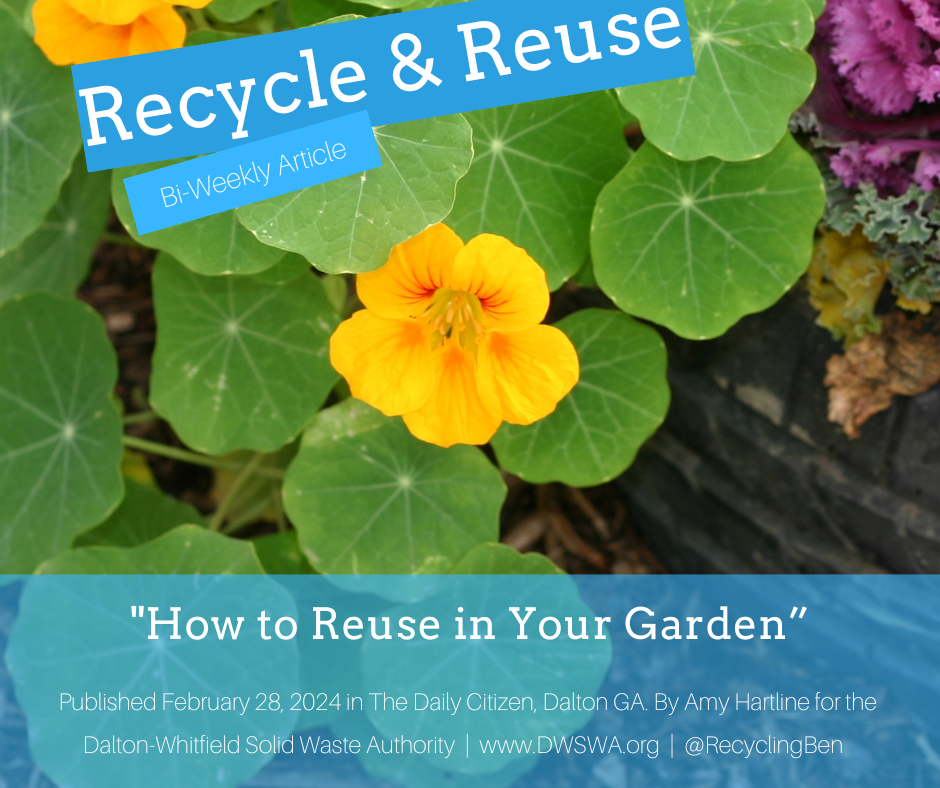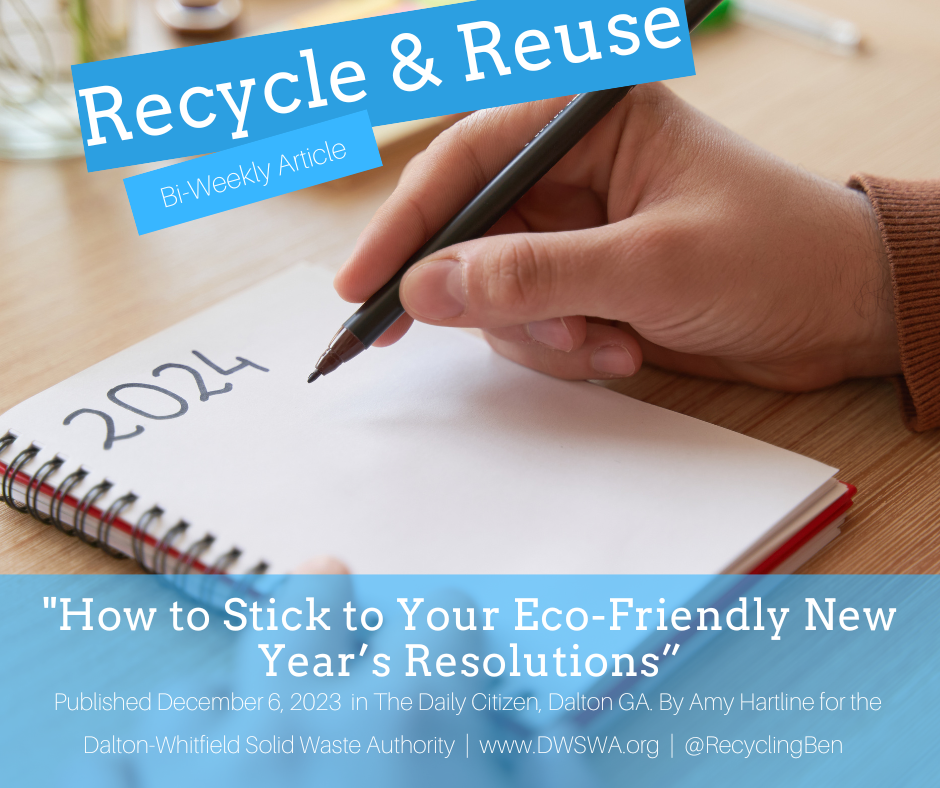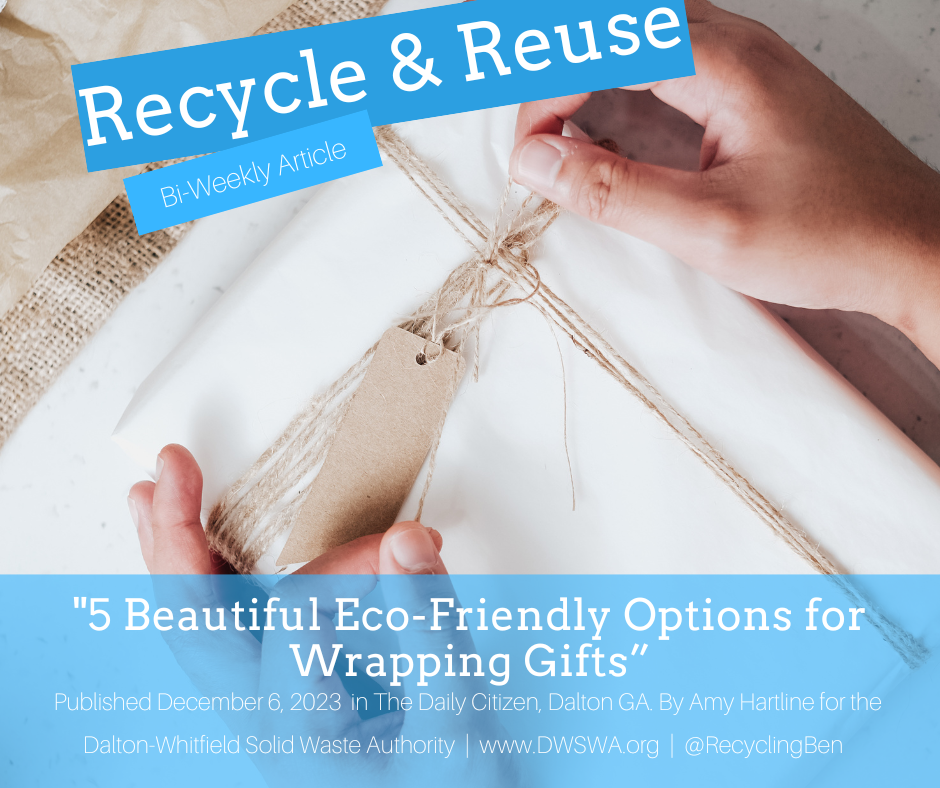How to Reuse in Your Garden
/With the few warm days we’ve had here in Dalton, I’ve been itching to get started on my garden. This year I want to keep my spending as minimal as possible and luckily there are plenty of ways to reuse old things for a new garden to keep costs down and the planet happy.
If you love growing from seed, there are plenty of materials we can use from our trash or recycling bin to help start our seeds. My favorite is putting them in old plastic clamshell takeaway boxes or clear milk jugs, but plenty of people swear by toilet paper rolls. The toilet paper rolls have a nifty feature where they can be buried directly into the ground when your seed sprouts. This will keep you from having to be extra gentle while planting your seeds into your garden and over time the toilet roll will naturally decompose.
Our climate makes for amazing gardens, but it also makes for a great environment for weeds. There are plenty of materials we can reuse to deter weeds in our gardens. Start by repurposing cardboard. Lay down flattened cardboard boxes to control weeds and then top it with mulch. This will create a barrier that suppresses weed growth. As the cardboard decomposes, it adds organic matter to the soil, enriching it over time.
You can also use this very newspaper in your garden to cut down on weeds. Wet the newspaper with your garden hose and place it around where you need the weeds suppressed and cover it with mulch the same way you did with cardboard. This can also help with moisture retention in your garden beds and as we move into warmer months that will become increasingly important and difficult.
We still aren't over the dangers of frost and even in the summer other elements like wind and heavy rain can be difficult for delicate plants. Cut off the bottom of plastic bottles and use the top as a protective cloche over small plants. Make sure to place them firmly in the ground so they don't blow away. This has an added benefit of acting like a mini-greenhouse for the plant helping it grow healthy and strong while staying protected.
If you've been thinking about growing vertically, try reusing a pallet. Stand the pallet up or hang it on the wall so that you can grow more plants in a smaller space. First lay down your pallet and line the back of the panels with landscape fabric and fill it with slits. Now you'll use another layer of fabric behind the soil to create a pocket. Stand your pallet up and give it a few days for the dirt to settle after watering it from the top. After the few days are up, cut small slits in the fabric and add in your plants. Green crops like lettuce, spinach, and kale work particularly well for these gardens.
Your kitchen scraps can be a great addition to your garden. While I prefer to add these into my compost and then add that to the garden, you may not be ready to take that step yet. Instead, you can start with adding your banana peels and coffee grounds to your established beds. The used coffee grounds will deter pests like slugs and snails that can wreak havoc on your plants and improve the soil texture. Banana peels will add potassium and other nutrients to the soil acting as a free fertilizer!
Be creative with materials that you are planning on throwing out. Your old wine cork or metal lid can be attached to a stake to create easy to use and fun plant markers. Your vegetable cans can make the perfect flower pot with a few small holes drilled into the bottom. Use broken pottery to create whimsical garden pathways. Whatever ways you choose to reuse, your garden will bring a smile to your face this year when you think of all the care you put into making it beautiful and keeping it eco-friendly.
Amy Hartline is the recycling and education program coordinator for the Dalton-Whitfield Solid Waste Authority. Have a recycling question? Contact her at (706) 278-5001 or ahartline@dwswa.org.































